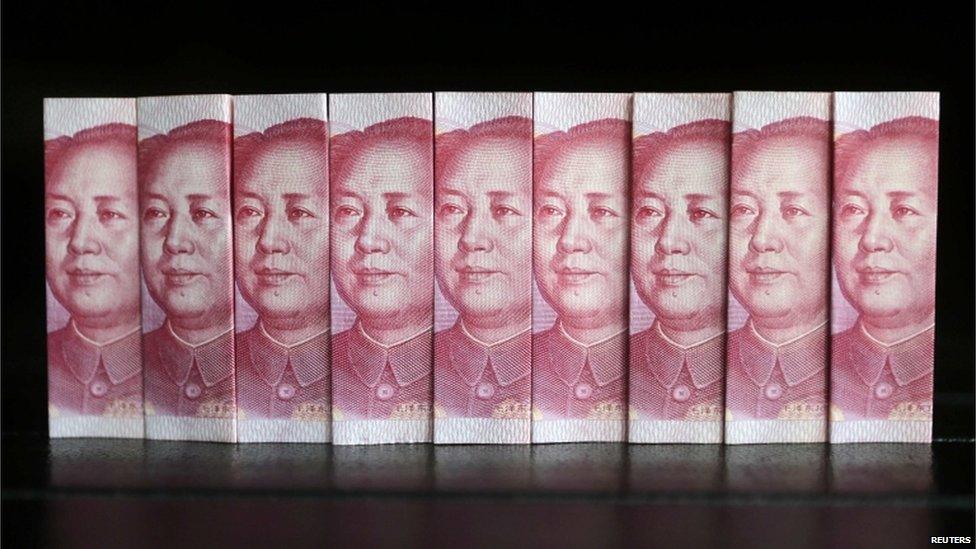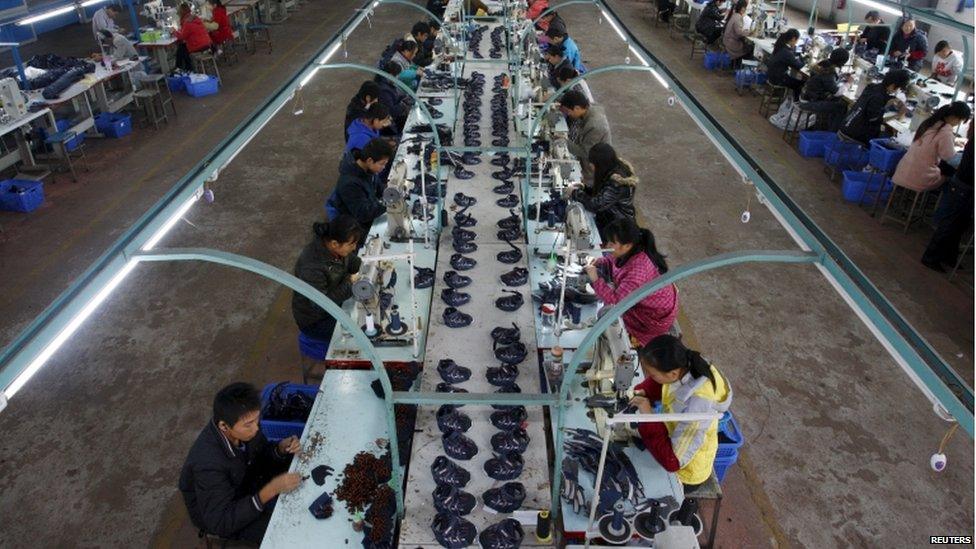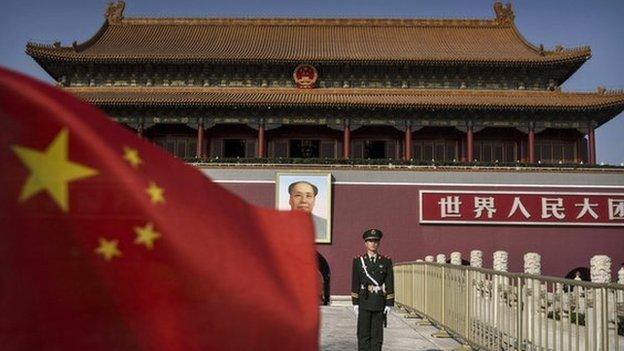Why China is devaluing the yuan
- Published

Analysts say China has other reasons for the devaluation besides stability
China says the decision to devalue its currency is all part of the plan to reform the way it manages its exchange rate.
In fact in its statement the central bank said that while the intention was to keep the yuan "basically stable", market forces will be given a bigger role in the economy.
Analysts say that could indicate that there may be further devaluation of the currency ahead - although China says this is a one-off event to react to a "complex situation" which "is posing new challenges".
So why is this important?
Well, Washington has been pressing Beijing to allow its currency to reflect what it thinks is its fair, higher value - the US argues that China keeps its exchange rate unfairly low so as to keep the price of its goods more affordable when they're sold overseas.
But China watchers say there's another reason behind the devaluation - and one that's far closer to home.
Job protection
The Chinese currency has effectively strengthened against other Asian currencies in the last 12 months - by more than 10%. This makes Chinese goods more expensive abroad.

China is the largest exporter of goods in the world
Then came the shocker - this weekend's export figures - showing that exports slumped by 8.3% from a year ago.
That's worrying news for Chinese factories, which in turn provide jobs for millions of Chinese villagers.
Economists say the government may be trying to avoid job losses at these factories by weakening the yuan.
Joining the club?
The export story is just one part of it however. Analysts have also pointed to China's longer-term goal of turning the yuan into a global reserve currency.
Later this year the International Monetary Fund (IMF) is expected to announce whether or not the Chinese yuan will be allowed into the elite currency club which includes the dollar, the euro, the pound and the yen.
In the past the IMF has said that China needs to have a flexible exchange rate, so that the value of the yuan adjusts to China's growth - the way currencies do in other market-driven economies.
The devaluation could be seen as a step in the right direction, but one that may well be viewed with caution by China's trade partners who are already wary of what they see as the Chinese government's management of financial markets.
- Published11 August 2015

- Published11 August 2015